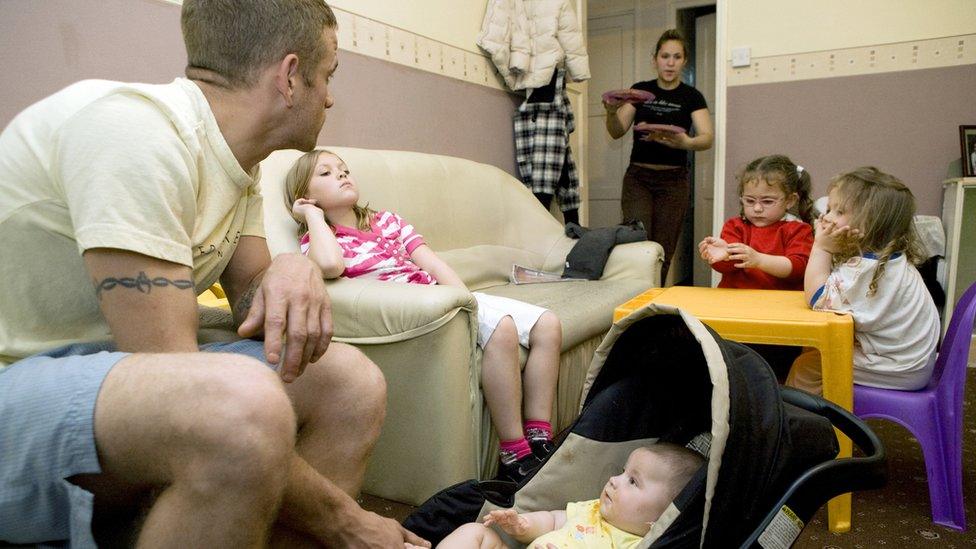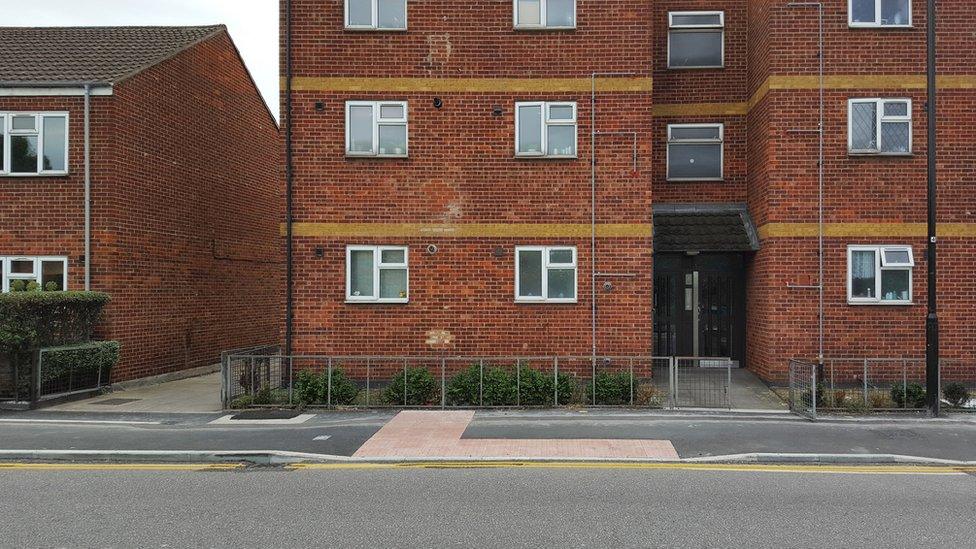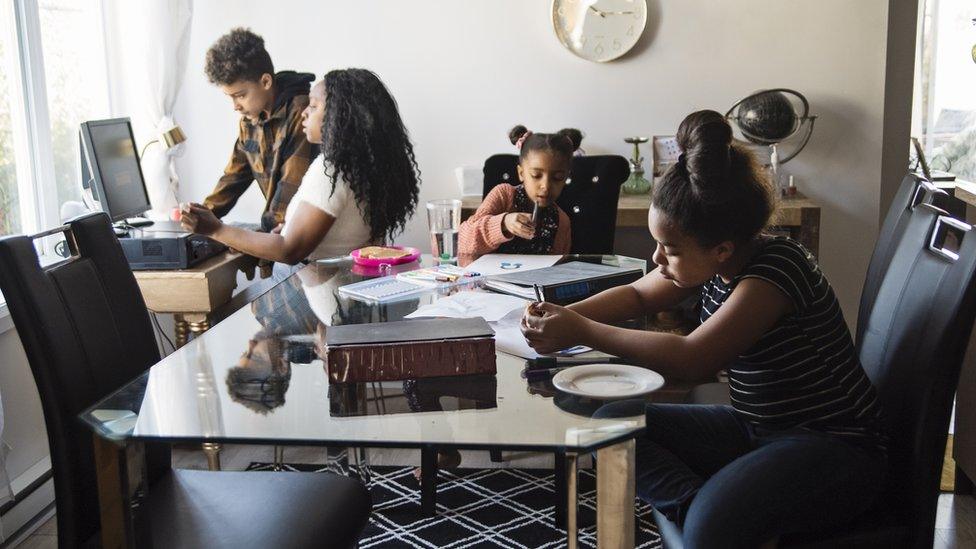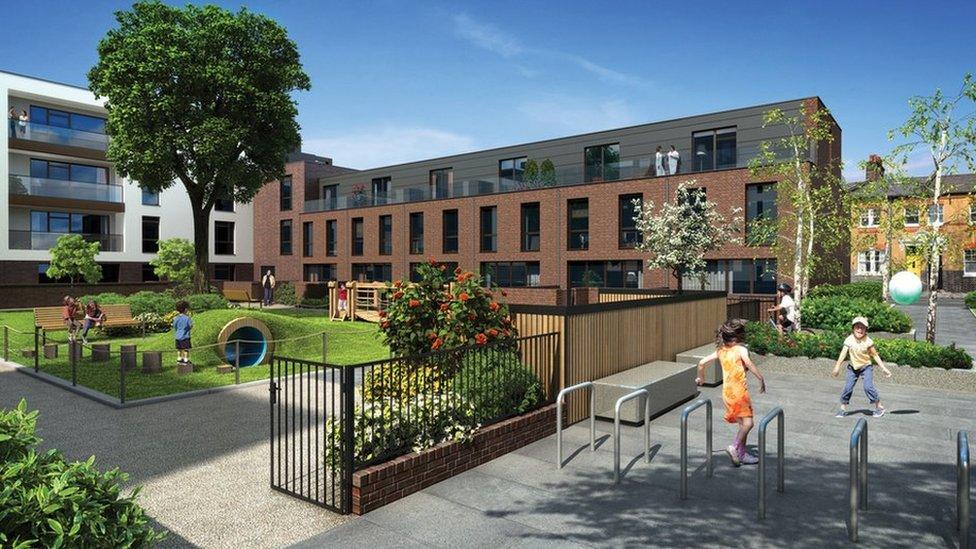Two million kids in England live in overcrowded houses
- Published
- comments

More than 310,000 children in England are forced to share beds with family members
More than two million children in England are currently living in overcrowded homes, according to a new report.
The findings, from the National Housing Federation (NHF), also show over 310,000 children in the country are forced to share beds with other family members because of the lack of space in their homes.
The huge number of children affected by overcrowding, which is said to be about one in six, is down to families not being able to access suitable and affordable homes.
"Our homes are meant to be places of comfort, safety and security. For children growing up in overcrowded homes they instead become chaotic and stressful environments with little personal space or privacy," said Kate Henderson who is the chief executive at the National Housing Federation.
"This can have a devastating impact on a child's self-esteem, wellbeing, and future life changes, as well as affecting family relationships and making it harder for parents to nurture their child's growth."
What does it mean to live in an overcrowded home?

More than two million children in England live in overcrowded homes according to new research
According to the NHF, households are considered be overcrowded if more than two children under the age of 10 are sharing a room, if two teenagers of different sexes are sharing a room, or if two adults over the age of 16 who are not in a relationship are sharing a room.
The new research found that in around 40% of overcrowded homes, children or teenagers share a bedroom with their parents. The NHF says this could affect more than 300,000 families and half a million children, including 142,000 teenagers.
It also found that a quarter of parents in overcrowded homes are regularly forced to sleep in a living room, bathroom, hallway or kitchen because of the lack of space.
Every child deserves the right to have a home that is suitable for their needs
Parents living in more than half of overcrowded homes worry their children are too embarrassed to bring friends home and 48% struggle to do their homework because of the lack of space.
Around 70% of families living in overcrowded homes say they've experienced both poor mental and physical health as a direct result of their living situation.
Children from ethnic minority backgrounds are three times more likely to be affected by overcrowding compared to children from white backgrounds.
What's the cause?

A shortage of social housing is leading to overcrowding in homes
The biggest cause of overcrowded homes in England is down to a shortage of what's known as social housing.
Social housing describes properties which are more affordable compared to standard types of accommodation that can rented or bought, and it exists to help those who might struggle to afford somewhere to live otherwise.
It's often provided by local councils or housing associations for those most in need and social housing costs a lot less compared to properties rented from a private landlord.
However, there's currently a big shortage of social housing, the NHF says. It also means families already living in social housing are the most likely to be affected by overcrowding as there aren't any larger homes available for them to move into.

Some children struggle to do their homework because of the lack of space
For families who currently don't have access to a social home, high rents means they can't afford to live in houses of a suitable size, forcing them to share smaller spaces which don't meet their needs. A third of overcrowded families live in privately rented homes like this according to the NHF.
"Every child deserves the right to have a home that is suitable for their needs and allows them to grow as individuals. Overcrowding is a direct result of our broken housing system, caused by underfunding by successive governments and a failure to prioritise building new homes for people on low incomes," Kate Henderson said.
"As a country, we are failing these families and these children and this must stop. We need an urgent, long term, national plan aimed at drastically increasing the number of affordable and social homes across England."
What has the government said?

The government has said it's committed to reducing overcrowding in England
The government has said it's committed to reducing overcrowding by increasing the amount of affordable housing available as well as helping councils and social housing landlords to better manage the properties they have.
"It's unacceptable for anyone to be living in an overcrowded home and councils have a duty to find people living in these conditions somewhere fit for purpose," a spokesperson from the Department for Levelling Up, Housing and Communities said.
"To ease pressures, we are increasing the supply of affordable housing. Our £11.5 billion Affordable Homes Programme will deliver thousands of affordable homes for both rent and to buy right across the country."
- Published27 March 2019

- Published5 April 2023

- Published6 March 2018

